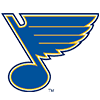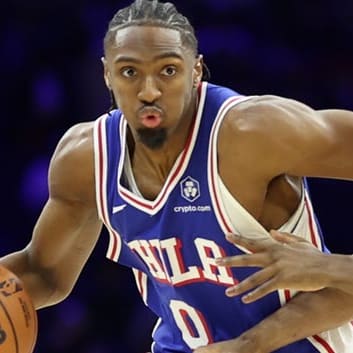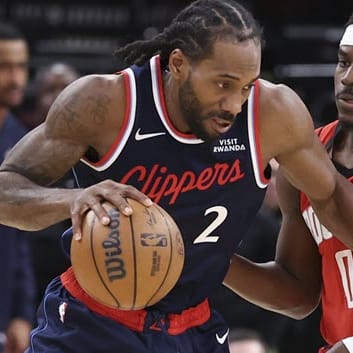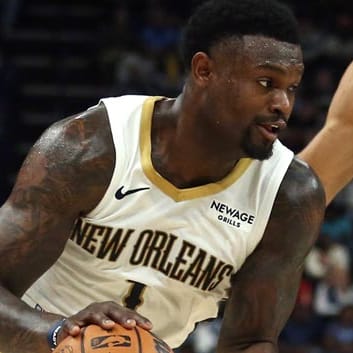With the trade deadline rapidly approaching on February 20th, that mantra continues to ring true, as contending and non-contending teams alike operate with their eyes as much to their check books as to their teams' present and future roster needs.
Following a take-it-or-leave-it offer from the league, the dissolution of the players' union, the filing of a federal antitrust lawsuit, and a combined 480 lost games, the NBA owners and the Players' Association agreed to a new collective bargaining agreement (CBA), which took effect in December 2011. Unable to negotiate a hard salary cap similar to those employed by the NFL and NHL, the owners were forced to settle for the next best thing under its "soft cap" - a more punitive luxury tax. Although owners failed to successfully negotiate for a coveted hard cap, a more stringent luxury tux accomplished two goals: (1) it would make teams think twice before committing to a higher payroll, theoretically lowering player salaries league-wide by depressing the market; and (2) small market teams, the real drivers of the lockout leading up to the 2011 CBA, would gain assurance that they could compete with big market clubs like the New York Knicks* when it came to new inking talent, fostering more parity and narrowing the gap between the "haves" and "have-nots."
*Teams such as the Knicks and Los Angeles Lakers have mega television deals that cover their luxury tax bills, allowing
With the trade deadline rapidly approaching on February 20th, that mantra continues to ring true, as contending and non-contending teams alike operate with their eyes as much to their check books as to their teams' present and future roster needs.
Following a take-it-or-leave-it offer from the league, the dissolution of the players' union, the filing of a federal antitrust lawsuit, and a combined 480 lost games, the NBA owners and the Players' Association agreed to a new collective bargaining agreement (CBA), which took effect in December 2011. Unable to negotiate a hard salary cap similar to those employed by the NFL and NHL, the owners were forced to settle for the next best thing under its "soft cap" - a more punitive luxury tax. Although owners failed to successfully negotiate for a coveted hard cap, a more stringent luxury tux accomplished two goals: (1) it would make teams think twice before committing to a higher payroll, theoretically lowering player salaries league-wide by depressing the market; and (2) small market teams, the real drivers of the lockout leading up to the 2011 CBA, would gain assurance that they could compete with big market clubs like the New York Knicks* when it came to new inking talent, fostering more parity and narrowing the gap between the "haves" and "have-nots."
*Teams such as the Knicks and Los Angeles Lakers have mega television deals that cover their luxury tax bills, allowing them to sign free agents to long-term, lucrative deals. Meanwhile, teams like the Minnesota Timberwolves have a disadvantage of not just cold weather, but a smaller fan base, and thus, smaller revenue stream.
Under the previous collective bargaining agreement, agreed to in 2005, a team paid $1 for every $1 its collective salary was above the luxury-tax threshold. Under the 2011 CBA, that same payment schedule continued for both the 2011-12 and 2012-13 seasons. Starting this season, however, teams pay an incremental tax** that increases with every $5 million above the tax threshold.
| Incremental Team Salary Above Tax Level | Tax Rate For Increment |
| $0 – $4.99M | $1.50-for-$1 |
| $5M – $9.99M | $1.75-for-$1 |
| $10M - $14.99M | $2.50-for-$1 |
| $15M - $19.99M | $3.25-for-$1 |
Tax rates continue to increase by $0.50 for each additional $5 million increment above the tax level (i.e. for Team Salary $20 million to $24.99 million above the tax level, the tax rate is $3.75-for-$1 for that increment).
Despite this bump in payments, the more lucrative franchises, such as the Lakers and Knicks, would have to be significantly over the tax threshold to really feel a detrimental, deterring effect. Arguably, therefore, the more important provision in the CBA is the so-called "Repeater Tax," which will go into effect for the first time next season. Teams that are repeat offenders (paying the luxury tax at least four out of the past five seasons) have a tax that is higher still – $1 more at each increment (i.e. for Team Salary that is $5 million to $9.99 million above the tax level, the tax rate for a repeat taxpayer is $2.75 for each $1 that team is over the level). Thus, perennial taxpayers – like the Lakers and Dallas Mavericks, who have no problem paying a small tax fee on a yearly basis – are now further penalized for being over the tax threshold on an continuous basis.
For example, the Lakers were approximately $19.9 million over the luxury tax level in 2011. As such, their tax bill that year (when the tax was still dollar-for-dollar) was $19.9 million. If, however, the Lakers were $19.9 million over the tax level in 2013, under the incremental tax adopted in the 2011 CBA, the team's tax bill would amount to an impressive $44.68 million. Finally, taking practical effect for the first time next season - even if the Lakers were only one penny over the luxury tax threshold for each of the previous three years (making them a repeat offender) - being that same $19.9 million over the tax line would cost the team a whopping $64.58 million in luxury taxes.
Even teams rolling in the dough, like the Lakers with their $3 billion television contract, will take pause when they're forced to forfeit such substantial profits, particularly when those teams are not legitimate title contenders. Competitive teams have been wise to spend their way to the edge of the luxury tax without going over it. Dealing for a player whose contract runs beyond this season, and pairing him with a player on a rookie contract who is scheduled for a big payday starting in 2014-15, could spell the start of a luxury tax era for that team. Basically, if a team is close to the line and can reasonably stay under, it makes long-term sense to do so. It could prevent having to make tough decisions down the line.
So what does it all mean for this season's trade deadline? To start, teams over the luxury tax, and especially those that have been perennial overspenders, may be looking to deal expensive assets and skirt under the tax this season to stymie concerns about having to pay the dreaded repeater tax in forthcoming years. Only three teams have paid the luxury tax in both seasons of the new CBA: the Lakers, Heat and Celtics. If any of those three are over the luxury tax again this season, they will be forced to pay the repeater tax next season. Of those three, both the Lakers and Heat appear to be locks to be above the tax line at the end of this year as well. While the Heat are not expected to make a play to get under the tax threshold given their championship aspirations, the Lakers are a different story. Though it is highly unlikely that Los Angeles will be able to pare enough salary to fall below the tax, any salary moved off the books would be of assistance in at least mitigating the luxury tax's effect and put the Lakers in better position to fall below in the future. As such, Pau Gasol will continue to be one of the top names on the trade market, as he's still a very capable player (when healthy) and on a massive expiring deal ($19 million), giving the team acquiring him coveted flexibility moving forward should they opt not to re-sign him. In addition to Gasol, it would also not be unexpected if the Lakers look to deal someone like Chris Kaman, who is on an expiring mini mid-level deal, and could be a serviceable big man for a contending team.
Like the Lakers, the Cleveland Cavaliers represent another team that could be very active at the trade deadline. Even though the Cavs traded for Luol Deng in early January, that move was almost as much about clearing Andrew Bynum's vesting salary before it became guaranteed as it was about improving their on-court product. With title aspirations that essentially amount to nil, Deng could be back on the market in an effort to manage the tax. The same goes for versatile center Anderson Varejao, whose $10 million salary next season is only partially guaranteed, making him a palatable option for a contender. With Kyrie Irving due for a huge raise in the near future, don't expect the Cavs to be looking to acquire any long-term contracts so as to avoid a financial apocalypse when Irving's rookie deal expires, which could leave the non-contending squad in repeater tax purgatory for year.
On the flip side, contending teams are likewise wary of their flirtations with the tax line. Despite the lucrative Los Angeles market and a championship-caliber squad, the Clippers are another team that has been loath to take on any additional expenses under notorious penny-pinching owner Donald Sterling. Although the Clippers could desperately use some frontcourt depth, they're unlikely to make a move for someone like Philadelphia's Spencer Hawes (or even Varejao) given their luxury tax concerns. If the team does make a move, look for it to be a cost-cutting one such as dealing from its excess supply of wing players – Jared Dudley, an appealing fantasy asset last year, immediately comes to mind. And for those thinking that Oklahoma City, given its championship aspirations, are the most likely suitor for Evan Turner given their glaring hole on the wing, think again. The Thunder, for the same reasons it traded James Harden to Houston last year, are very much a small market franchise, and their general manager, Sam Presti, operates as such. With the Thunder dangerously close to the luxury tax line, it'd be a shock to see them add Turner, who is due a raise next season, as hopping over the luxury tax line (and setting up a potential repeater tax scenario) would leave the team in a precarious position with Kevin Durant due a max deal in two years.
Clearly, there is more to a team's agenda than what is simply addressed here. The luxury tax is just one factor in the moves a team decides to make or not make. But it would be a mistake to overlook the new financial impact that will be a major driving force in clubs' actions or inactions at the deadline. With the repeater tax lurking and set to take effect next season, teams are revamping their approach in a way never seen before, and understanding a team's motivations can be a huge assistance to fantasy owners looking to get ahead of the game at this crucial juncture in the fantasy season.



































